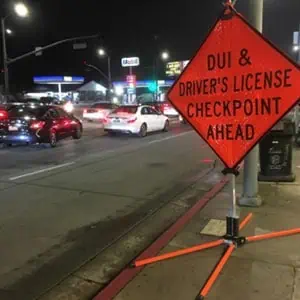 The Three Phases Of A DWI/DUI Investigation
The Three Phases Of A DWI/DUI Investigation
Law enforcement officers across the country, following standardized training provided by NHTSA (National Highway Traffic Safety Administration), conduct DWI/DUI investigations in three distinct phases. These phases of DWI/DUI stop and investigation in New York are designed to systematically assess a motorist’s level of impairment.
-
Vehicle In Motion (Should I Stop?)
During the Vehicle in Motion phase, officers consider 24 cues before initiating a traffic stop. The reasons for the stop may range from a moving violation to an equipment-related issue. Additionally, officers observe behaviors like slow response to traffic signals, illegal turns, or driving without headlights at night. The cues include the following:
-
- Turning with a wide radius;
- Almost striking another object or vehicle;
- Weaving;
- Straddling a center or lane marker;
- Appearing to be impaired;
- Driving in areas other than a designated road;
- Driving in the opposing lane;
- Slow response to traffic signals;
- Illegal or improper turns;
- Inappropriately responding to police signals;
- Stopping problems;
- Driving at varying speeds;
- Accelerating or decelerating abnormally rapidly;
- Driving without headlights on at night;
- Swerving;
- Following too closely;
- Drifting;
- Driving less than 10 M.P.H. below the speed limit;
- Stopping without cause;
- Improper or unsafe lane changes;
- Inappropriate or unusual behavior;
- Failing to or inconsistently signaling while driving;
- And more…
Following the command to stop, six additional cues are assessed, including:
-
- Attempts to flee;
- No response to sirens or emergency equipment;
- Slow response;
- Abruptly swerving;
- Sudden stops;
- Striking the curb or other objects.
-
Personal Contact (Should I Have The Motorist Exit The Vehicle?)
Once the decision to stop the vehicle has been made, the Personal Contact phase begins. Officers look for signs of impairment during this phase, such as slurred speech, bloodshot eyes, or the smell of alcohol or drugs. If they suspect impairment, the officer may request the motorist to exit the vehicle for further evaluation.
-
Pre-Arrest Screening (Should I Make the Arrest?)
During Pre-Arrest Screening, officers assess the motorist’s level of impairment through field sobriety tests and may ask questions about their recent alcohol or drug use, as well as details about their current journey.
In all, the decision to make an arrest is contingent on the observations and evaluations made during the three phases of the investigation. Understanding this process is essential if you face DUI/DWI charges, as it forms the basis for your legal defense.
Your Rights During DUI/DWI Investigations
When stopped by law enforcement during a DUI/DWI investigation in New York, you are generally required to provide your driver’s license, registration, and vehicle insurance information upon request by a police officer. However, you are not required to answer any questions beyond identifying yourself by submitting these documents. As such, it is wise to politely decline to answer questions the officer who pulls you over may ask.
You need to know that, even if your vehicle is not moving, you can still be legally considered to have been ‘operating’ it legally, based on circumstantial evidence. This evidence can include being in the driver’s seat, having the keys in the ignition (or on your person), keeping the engine running, or making admissions about driving.
As an NHTSA-trained instructor in Standardized Field Sobriety Tests, I bring a unique level of knowledge and experience to navigate these complex investigations. As such, I often emphasize the importance of invoking your right to counsel during DUI/DWI interactions with the police. In fact, it’s crucial to have an attorney’s name and contact information readily available to provide to the police. This, coupled with politely declining to answer questions beyond identification, helps to protect you.
Refusing Chemical Tests
In New York, you have the right to refuse a chemical test, but doing so comes with some severe consequences that may not be worth it in the end depending on your situation. Refusing a chemical test may result in:
- Suspension Of Driver’s License
Refusal can lead to the immediate suspension of your driver’s license at arraignment.
- Revocation Of Driver’s License
The New York Department of Motor Vehicles (DMV) may subsequently revoke your driver’s license for one year.
- Other Legal Implications
Refusal can be tactically used against you in court, most likely framed as a lack of cooperation and indication of guilt, possibly improving the prosecution’s case.
In cases where there is suspicion of operating a vehicle under the influence and a crash has occurred that causes severe injury or fatalities to the other party, refusing a chemical test does not necessarily shield you from testing. The police may seek a court order, such as a search warrant, to compel the taking of your blood for testing.
With all this in mind, I highly advise you to consult an attorney before deciding whether to take or refuse a chemical test. An attorney can provide guidance based on the specific circumstances of your case and help you navigate the potential consequences.
For more information on The DUI/DWI Stop & Investigation In New York, a free initial consultation is your next best step. Get the information and legal answers you are seeking by calling (845) 533-0265 today.

Call For Your Complimentary Consultation
(845) 533-0265

 The Three Phases Of A DWI/DUI Investigation
The Three Phases Of A DWI/DUI Investigation